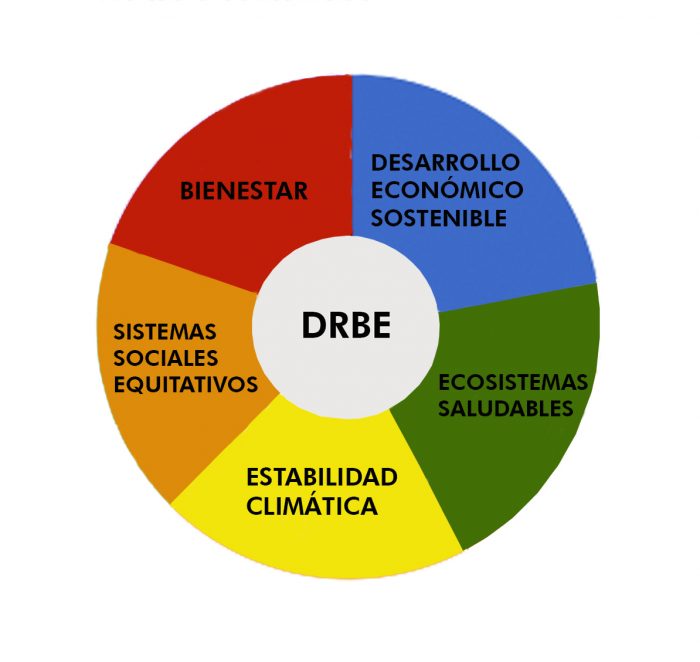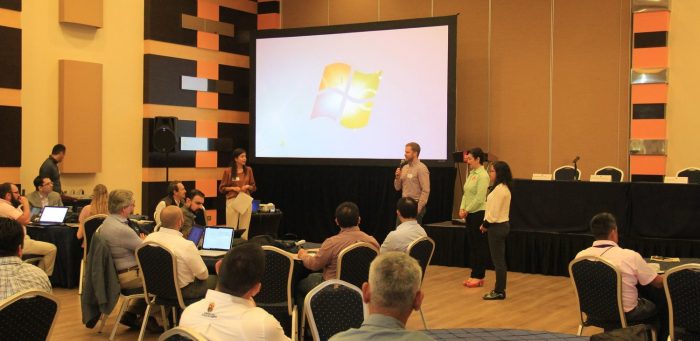Low-emission rural development (LED-R) requires large-scale strategies in all jurisdictions. Chiapas is characterized by tropical forest landscapes and different processes of deforestation and land-use change. From a broad perspective, low-emission rural development contributes to the fulfillment of the 2030 Agenda.
LED-R contributes to meeting the transversal goals of the 2030 Agenda, considering the five main pillars that define progress towards LED-R (see figure **).
**

In accordance with the Sustainable Development Goals (SDGs), the LED-R takes action to combat climate change (SDG 13), promotes the sustainable use of terrestrial ecosystems (SDG 15), strengthens alliances to achieve objectives (SDG 17), end hunger (SDG 2) and work for the end of poverty (SDG 1). The Implementing Low-Emission Rural Development Strategies project works directly towards other objectives as well, such as the goal to ensure sustainable consumption and production patterns (SDG 12).
The Implementing Low-Emission Rural Development Strategies project is working on a LED-R plan for Chiapas and for the sectors that drive deforestation in Chiapas: livestock, palm oil and forestry.
In the case of palm oil, through the IKI project , Pronatura Sur, A.C. participates in two spaces to implement a palm oil cultivation organization in Mexico and prevent associated deforestation: the Roundtable on Sustainable Palm Oil National Interpretation (RSPO-NI) and the Sustainable Palm Oil Group of the Coast of Chiapas.

RSPO-NI in Mexico
The RSPO developed a model based on Principles and Criteria (P&C) that are adapted to the context of each country through the NIs, which establish the standards for all actors in the palm oil value chain.
Pronatura Sur, A.C. works to
- include the particularities and socio-environmental effects of palm oil producing states and
- recognize the negative effects of converting lands into monoculture plantations and avoid them.
Working Group on Sustainable Palm Oil of the Coast of Chiapas
With the goal to monitor palm oil cultivation on the Chiapas coast, the working group began operating in March 2017 and includes the following actors:
- Government institutions
- Industry
- Civil society organizations
- Local producers
Pronatura Sur, A.C. highlighted the particularities and effects of palm oil production, both locally and regionally. The working group’s impact is linked to economic and sustainable development through responsible production and consumption (SDG 12) in Chiapas and other palm oil producing states.
Links
- Ministry of Agriculture, Livestock, Rural Development, Fisheries and Food (SAGARPA) https://www.gob.mx/sagarpa
- National Interpretation of the Principles and Criteria of RSPO Mexico https://inrspomexico.org/
-
Pronatura Sur, A.C. http://www.pronatura-sur.org/web/

Likewise, the working group participates in the construction of a positive incentive system that helps mobilize financial resources for essential activities, which also contributes to the reduction of inequalities (SDG 10). On November 29 and 30, Pronatura Sur organized a workshop to take steps to create this jurisdictional incentive system. Among the workshop’s conclusions and agreements were the following actions:
- Prepare guidelines to promote the elements of the National Development Plan, as well as of sectoral and state plans.
- Create a brief document with LED-R public policy recommendations.
- Organize the Second Incentives Workshop for LED-R.
The Implementing Low-Emission Rural Development Strategies project is financed through the International Climate Initiative (IKI) of the Federal Ministry for the Environment, Nature Conservation and Nuclear Safety (BMU) of Germany.
This article belongs to Pronatura. Its content is the sole responsibility of the author.
